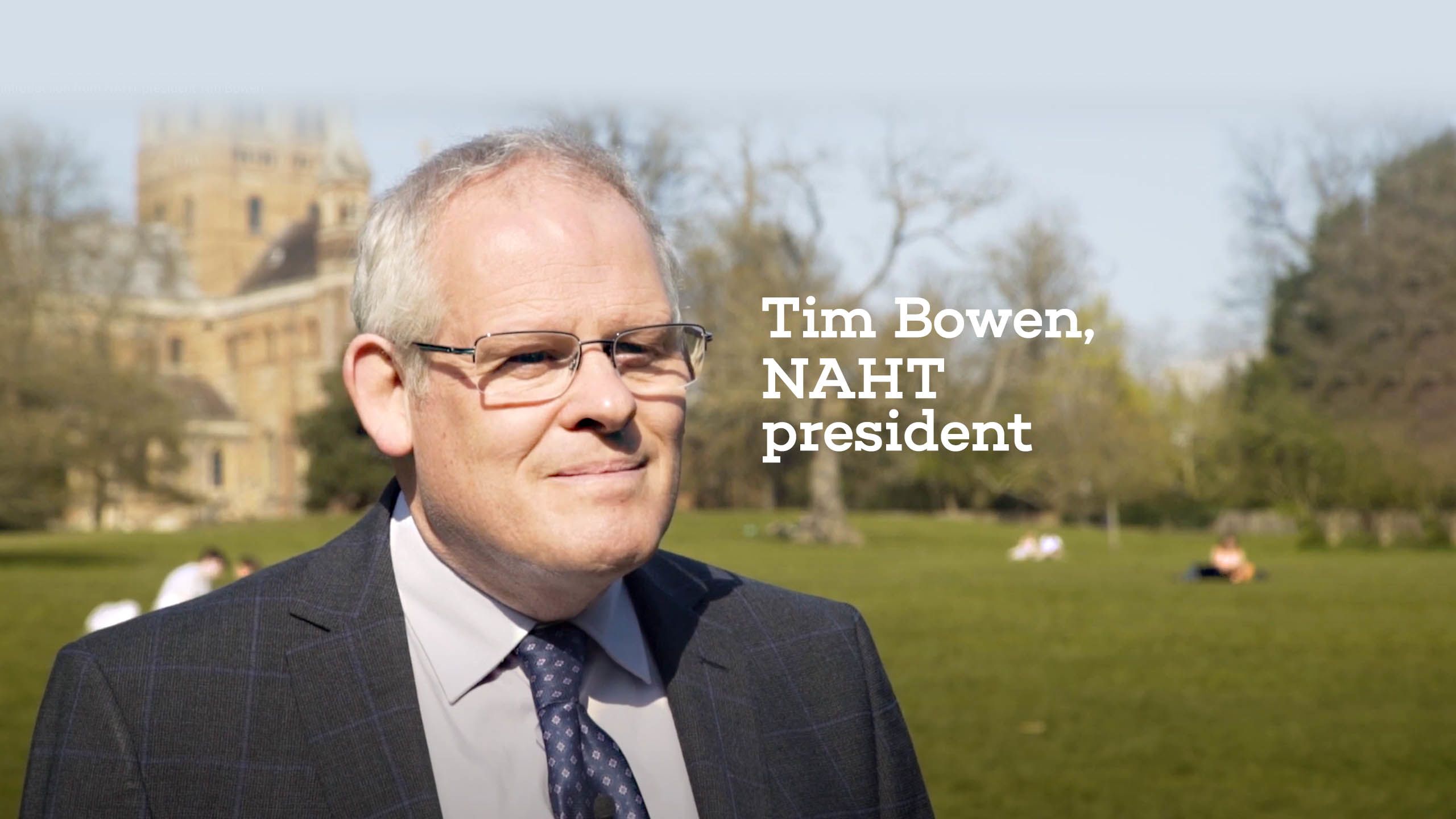
Leadership Focus journalist Nic Paton talks to NAHT president Tim Bowen.

NAHT has the ladies’ footwear section of Marks & Spencer’s flagship store in Liverpool to thank for its new national president.
Tim Bowen may have been a head teacher for a quarter of a century, spending the past 21 years at Maple Primary School in St Albans, Hertfordshire, but the spark that led him to education and schooling was recognising that a life surrounded by heels, flats, mules, wedges and ankle boots was not for him.
“I began life as a management trainee with Marks & Spencer (M&S),” Tim recalls to Leadership Focus. “In those days, the mid-1980s, M&S was one of the top employers on the university ‘milk round’. When I got the offer, I thought I had done rather well; the salary was good, and I enjoyed the hotels I was staying in.
“My first position of responsibility was to be put in charge of the ladies’ footwear section of the store in Liverpool. I’m afraid I just couldn’t get excited about ladies’ footwear, and that, I quickly realised, was completely the wrong attitude to have for retailing.
“I remember one afternoon I went for a walk along the Wirral coast thinking, ‘if it’s not going to be retailing, what is it going to be?’. At university, I had spent a year in the US – for that summer, as a counsellor in a boys’ camp. It was incredibly hard work, but I loved it; this was in Texas, so you had six-year-olds on the rifle range and five-year-olds trying not to fall off their horses.
“I wondered if the nearest equivalent could be primary school teaching. So, I took a very deep breath, resigned from M&S – without even anything else to go to – and within a few days, I had got a voluntary position as an unpaid helper at High Beeches Primary School in Harpenden.
“Within the first week, I knew, I absolutely knew, that primary school teaching was the career for me.”



NAHT has the ladies’ footwear section of Marks & Spencer’s flagship store in Liverpool to thank for its new national president.
Tim Bowen may have been a head teacher for a quarter of a century, spending the past 21 years at Maple Primary School in St Albans, Hertfordshire, but the spark that led him to education and schooling was recognising that a life surrounded by heels, flats, mules, wedges and ankle boots was not for him.

“I began life as a management trainee with Marks & Spencer (M&S),” Tim recalls to Leadership Focus. “In those days, the mid-1980s, M&S was one of the top employers on the university ‘milk round’. When I got the offer, I thought I had done rather well; the salary was good, and I enjoyed the hotels I was staying in.
“My first position of responsibility was to be put in charge of the ladies’ footwear section of the store in Liverpool. I’m afraid I just couldn’t get excited about ladies’ footwear, and that, I quickly realised, was completely the wrong attitude to have for retailing.
“I remember one afternoon I went for a walk along the Wirral coast thinking, ‘if it’s not going to be retailing, what is it going to be?’. At university, I had spent a year in the US – for that summer, as a counsellor in a boys’ camp. It was incredibly hard work, but I loved it; this was in Texas, so you had six-year-olds on the rifle range and five-year-olds trying not to fall off their horses.

“I wondered if the nearest equivalent could be primary school teaching. So, I took a very deep breath, resigned from M&S – without even anything else to go to – and within a few days, I had got a voluntary position as an unpaid helper at High Beeches Primary School in Harpenden.
“Within the first week, I knew, I absolutely knew, that primary school teaching was the career for me.”
Tim spent a decade as a classroom teacher before rising through the ranks to deputy head teacher and then to head teacher, first at Little Gaddesden Church of England Primary School in Hertfordshire and then Maple Primary School.
“Maple is a single-form entry school, and we have a specialist base for profoundly deaf pupils, which is quite unique and a very special feature of our school. They are taught both in the specialist base and the mainstream classes alongside their peers,” he says proudly.
NAHT has been with Tim at every stage of his headship ‘journey’. “In my first headship, I wasn’t actively involved in the union – simply because I was so busy just surviving as a school head, and I had a teaching commitment as well; NAHT was just the advice line at the end of the phone,” Tim recalls.
“But when I went to Maple, the head of a nearby village school encouraged me to go along to a Hertfordshire branch meeting. I really enjoyed it, and at the end, branch secretary Simon Springer came up and said, ‘so are you going to come to future meetings then?’.
“He blatantly lied, but I am so glad he did! I got absolutely hooked,” Tim says.
Tim attended his first NAHT conference in York in 2003. He initially became a branch official, then a treasurer, a branch secretary and president of the Eastern region. In 2013, he became a national executive member, and he has also chaired the Member Services Committee.
“NAHT has been so useful for sorting out problems or just having someone to talk to. ‘How would you handle that?’, and ‘what on earth does this latest Department for Education initiative mean?’ – NAHT has come to my rescue numerous times,” he says.
“The local support has been invaluable, and many of the branch officials have become really good friends, so that is an important social aspect too. Every head needs their support network. In the more difficult times, NAHT has been important in helping to reduce the stress, reduce the pressure and in providing reassurance,” Tim adds.


Tim spent a decade as a classroom teacher before rising through the ranks to deputy head teacher and then to head teacher, first at Little Gaddesden Church of England Primary School in Hertfordshire and then Maple Primary School.
“Maple is a single-form entry school, and we have a specialist base for profoundly deaf pupils, which is quite unique and a very special feature of our school. They are taught both in the specialist base and the mainstream classes alongside their peers,” he says proudly.
NAHT has been with Tim at every stage of his headship ‘journey’. “In my first headship, I wasn’t actively involved in the union – simply because I was so busy just surviving as a school head, and I had a teaching commitment as well; NAHT was just the advice line at the end of the phone,” Tim recalls.
“But when I went to Maple, the head of a nearby village school encouraged me to go along to a Hertfordshire branch meeting. I really enjoyed it, and at the end, branch secretary Simon Springer came up and said, ‘so are you going to come to future meetings then?’.
“He blatantly lied, but I am so glad he did! I got absolutely hooked,” Tim says.
Tim attended his first NAHT conference in York in 2003. He initially became a branch official, then a treasurer, a branch secretary and president of the Eastern region. In 2013, he became a national executive member, and he has also chaired the Member Services Committee.
“NAHT has been so useful for sorting out problems or just having someone to talk to. ‘How would you handle that?’, and ‘what on earth does this latest Department for Education initiative mean?’ – NAHT has come to my rescue numerous times,” he says.
“The local support has been invaluable, and many of the branch officials have become really good friends, so that is an important social aspect too. Every head needs their support network. In the more difficult times, NAHT has been important in helping to reduce the stress, reduce the pressure and in providing reassurance,” Tim adds.


All of which, rather neatly, brings us on to some of Tim’s priorities for his year as national president: mental health, well-being and resilience.
They are one reason why he has chosen Education Support as NAHT's charity partner for the year (see below). Of course, his priorities reflect vital issues and concerns that have affected the whole profession during the past year-and-a-half of pandemic, public health and education crises.
“In my career, I have seen many good, experienced heads become burnt out, become jaded. Sometimes they have been on the receiving end of a poor Ofsted inspection, and no matter how many very conscientious and good years of service they have had, suddenly they are in real difficulty. I can think of a few people I have known well whose careers have not ended on a happy note,” Tim explains.
“The pressures of the job, as we all know, seem to have increased each year significantly. It is absolutely essential that school leaders develop those skills of resilience that are now required, particularly if they are looking to do their jobs well into their sixties.
“There are no two ways about it, however; for heads, it has been immensely pressurising. For me, it has certainly been the most challenging of any of the 25 years I have had as a head. You have had to be the rock in what has been an extremely severe storm. In my case, the support I received from my deputy head teacher Shanti Johnson in managing my school during the pandemic was invaluable.
“The toll this has taken, especially on school leaders, is huge. I think it is absolutely the right time, both as an association within NAHT and nationally, that we really speak about school leaders’ emotional well-being and good mental health; that we encourage that conversation. In the past, it was about keeping a stiff upper lip; it was seen as a 'weakness' to show emotion.
“Head teachers, especially, along with their leadership teams, have been through so much, and I think just to talk openly about that and look at how, if we’re in this for the long haul, we can keep effective as school leaders is important. To further that conversation, I think, is paramount,” Tim argues.
The second strand of his presidency, he hopes, will be helping the profession – and NAHT members – take the first steps of what is likely to be the long and probably challenging road of ‘covid-19 recovery’.
We are looking at this issue in more detail elsewhere in this edition of Leadership Focus, but Tim is clear this will be a journey that continues well beyond his year as president. “There are no guarantees, of course, but as, hopefully, the pandemic begins to lessen, the business of recovery is, I fear, going to take a good few years,” he points out.
“Implementing the specifics of the recovery programme, giving advice to members and supporting them - those will be the challenges.”



All of which, rather neatly, brings us on to some of Tim’s priorities for his year as national president: mental health, well-being and resilience.
They are one reason why he has chosen Education Support as NAHT's charity partner for the year (see below). Of course, his priorities reflect vital issues and concerns that have affected the whole profession during the past year-and-a-half of pandemic, public health and education crises.
“In my career, I have seen many good, experienced heads become burnt out, become jaded. Sometimes they have been on the receiving end of a poor Ofsted inspection, and no matter how many very conscientious and good years of service they have had, suddenly they are in real difficulty. I can think of a few people I have known well whose careers have not ended on a happy note,” Tim explains.
“The pressures of the job, as we all know, seem to have increased each year significantly. It is absolutely essential that school leaders develop those skills of resilience that are now required, particularly if they are looking to do their jobs well into their sixties.
“There are no two ways about it, however; for heads, it has been immensely pressurising. For me, it has certainly been the most challenging of any of the 25 years I have had as a head. You have had to be the rock in what has been an extremely severe storm. In my case, the support I received from my deputy head teacher Shanti Johnson in managing my school during the pandemic was invaluable.
“The toll this has taken, especially on school leaders, is huge. I think it is absolutely the right time, both as an association within NAHT and nationally, that we really speak about school leaders’ emotional well-being and good mental health; that we encourage that conversation. In the past, it was about keeping a stiff upper lip; it was seen as a 'weakness' to show emotion.
“Head teachers, especially, along with their leadership teams, have been through so much, and I think just to talk openly about that and look at how, if we’re in this for the long haul, we can keep effective as school leaders is important. To further that conversation, I think, is paramount,” Tim argues.
The second strand of his presidency, he hopes, will be helping the profession – and NAHT members – take the first steps of what is likely to be the long and probably challenging road of ‘covid-19 recovery’.
We are looking at this issue in more detail elsewhere in this edition of Leadership Focus, but Tim is clear this will be a journey that continues well beyond his year as president. “There are no guarantees, of course, but as, hopefully, the pandemic begins to lessen, the business of recovery is, I fear, going to take a good few years,” he points out.
“Implementing the specifics of the recovery programme, giving advice to members and supporting them - those will be the challenges.”


Finally, what of the other Tim Bowen, the man outside of school? Tim is married to Julia, a part-time primary school teacher, and has two daughters, Anna, 19, and Jessica, 17. Other than family life, Tim’s passion outside of work is volunteering as a guard on the Ravenglass and Eskdale Narrow Gauge Steam Railway.

“It is a beautiful line in Cumbria, from Ravenglass just north of Barrow to Eskdale, one of the most beautiful of the Lake District valleys. Every opportunity I have, I go up there, and I do a spot of guarding,” he explains.
Yet even this, Tim is keen to emphasise, returns us to his overarching message about the importance of mental health and well-being. It is vital head teachers, especially now, find something in their lives – whatever it is or whatever works for them – to help them genuinely switch off from the high-stakes pressures of the educational coalface, something that allows them mentally to recharge and reset.
“I trained as a guard at the age of 18, after my A levels, and I’ve been going back as a volunteer ever since. In terms of my well-being and resilience, that has been my big switch off. Going there, out in the fresh air, and being totally absorbed in something that is not work helps me to destress and unwind,” Tim explains.


Finally, what of the other Tim Bowen, the man outside of school? Tim is married to Julia, a part-time primary school teacher, and has two daughters, Anna, 19, and Jessica, 17. Other than family life, Tim’s passion outside of work is volunteering as a guard on the Ravenglass and Eskdale Narrow Gauge Steam Railway.

“It is a beautiful line in Cumbria, from Ravenglass just north of Barrow to Eskdale, one of the most beautiful of the Lake District valleys. Every opportunity I have, I go up there, and I do a spot of guarding,” he explains.
Yet even this, Tim is keen to emphasise, returns us to his overarching message about the importance of mental health and well-being. It is vital head teachers, especially now, find something in their lives – whatever it is or whatever works for them – to help them genuinely switch off from the high-stakes pressures of the educational coalface, something that allows them mentally to recharge and reset.
“I trained as a guard at the age of 18, after my A levels, and I’ve been going back as a volunteer ever since. In terms of my well-being and resilience, that has been my big switch off. Going there, out in the fresh air, and being totally absorbed in something that is not work helps me to destress and unwind,” Tim explains.


NAHT’S WELL-BEING CAMPAIGN
To coincide with Tim’s presidency, and simply because it is needed more than ever, NAHT is launching a campaign to focus on the well-being and mental and emotional health of school leaders.
The campaign will feature continuing professional development opportunities, blogs, advice and the shared experiences of members on looking after their well-being while leading schools during these difficult times (see some examples of these below).
Tim said of the campaign: “It’s no secret that school leaders do an incredibly stressful job, and no more so than over the last 15 months, but while we often talk about these issues, we rarely focus on the things that can help.
“I want us to spend some time and effort this year sharing and promoting the courses, resources, advice and tips that can make a real difference to school leaders in their roles. We know we can’t change some of the realities of the job in front of us, but we can support each other to make it that bit easier.”
EDUCATION SUPPORT
In a year when the mental health and well-being of all teachers, but school leaders especially, have never been more in the spotlight, Tim’s choice of Education Support as the charity partner for his presidential year is not just highly topical. It also sends out an important message to NAHT members.
Education Support (www.educationsupport.org.uk) is the only UK charity dedicated to supporting and improving the mental health and well-being of all teachers and education staff.
As Tim puts it: “It is the ethos that Education Support brings; that it recognises the stresses for everyone in education remain high, but especially for school leaders.
“As its chief executive Sinéad Mc Brearty has said, we need to recognise that self-care for school leaders is not self-indulgence. Looking after ourselves needs to be a core part of helping us to do the jobs that we do. For me, that ties in uniquely with my agenda as national president.”
The charity’s 2020 Teacher Wellbeing Index concluded more teachers than ever are experiencing symptoms that can lead to anxiety and depression. More than half (52%) said they had insomnia in the past year, and 40% were having difficulty concentrating, both of which are associated with poor mental health.
Last year, the charity provided direct support to 15,200 people working in education and worked with more than 1,000 schools and colleges.
As an NAHT member, you can access its dedicated, confidential counselling and support helpline on 0800 9174055. Open 24/7, Education Support’s helpline is staffed by qualified counsellors who can offer emotional and practical support.
The charity also offers an employee assistance programme that can provide staff with access to confidential counselling support and a financial grants service to provide short-term aid to people working in education who are experiencing a financial crisis.


EDUCATION SUPPORT
In a year when the mental health and well-being of all teachers, but school leaders especially, have never been more in the spotlight, Tim’s choice of Education Support as the charity partner for his presidential year is not just highly topical. It also sends out an important message to NAHT members.
Education Support (www.educationsupport.org.uk) is the only UK charity dedicated to supporting and improving the mental health and well-being of all teachers and education staff.
As Tim puts it: “It is the ethos that Education Support brings; that it recognises the stresses for everyone in education remain high, but especially for school leaders.
“As its chief executive Sinéad Mc Brearty has said, we need to recognise that self-care for school leaders is not self-indulgence. Looking after ourselves needs to be a core part of helping us to do the jobs that we do. For me, that ties in uniquely with my agenda as national president.”

The charity’s 2020 Teacher Wellbeing Index concluded more teachers than ever are experiencing symptoms that can lead to anxiety and depression. More than half (52%) said they had insomnia in the past year, and 40% were having difficulty concentrating, both of which are associated with poor mental health.
Last year, the charity provided direct support to 15,200 people working in education and worked with more than 1,000 schools and colleges.
As an NAHT member, you can access its dedicated, confidential counselling and support helpline on 0800 9174055. Open 24/7, Education Support’s helpline is staffed by qualified counsellors who can offer emotional and practical support.
The charity also offers an employee assistance programme that can provide staff with access to confidential counselling support and a financial grants service to provide short-term aid to people working in education who are experiencing a financial crisis.

“Hopefully, the partnership we will have over the next year, which builds on the relationship we have with them already, is going to be very beneficial to our members,” Tim adds.


